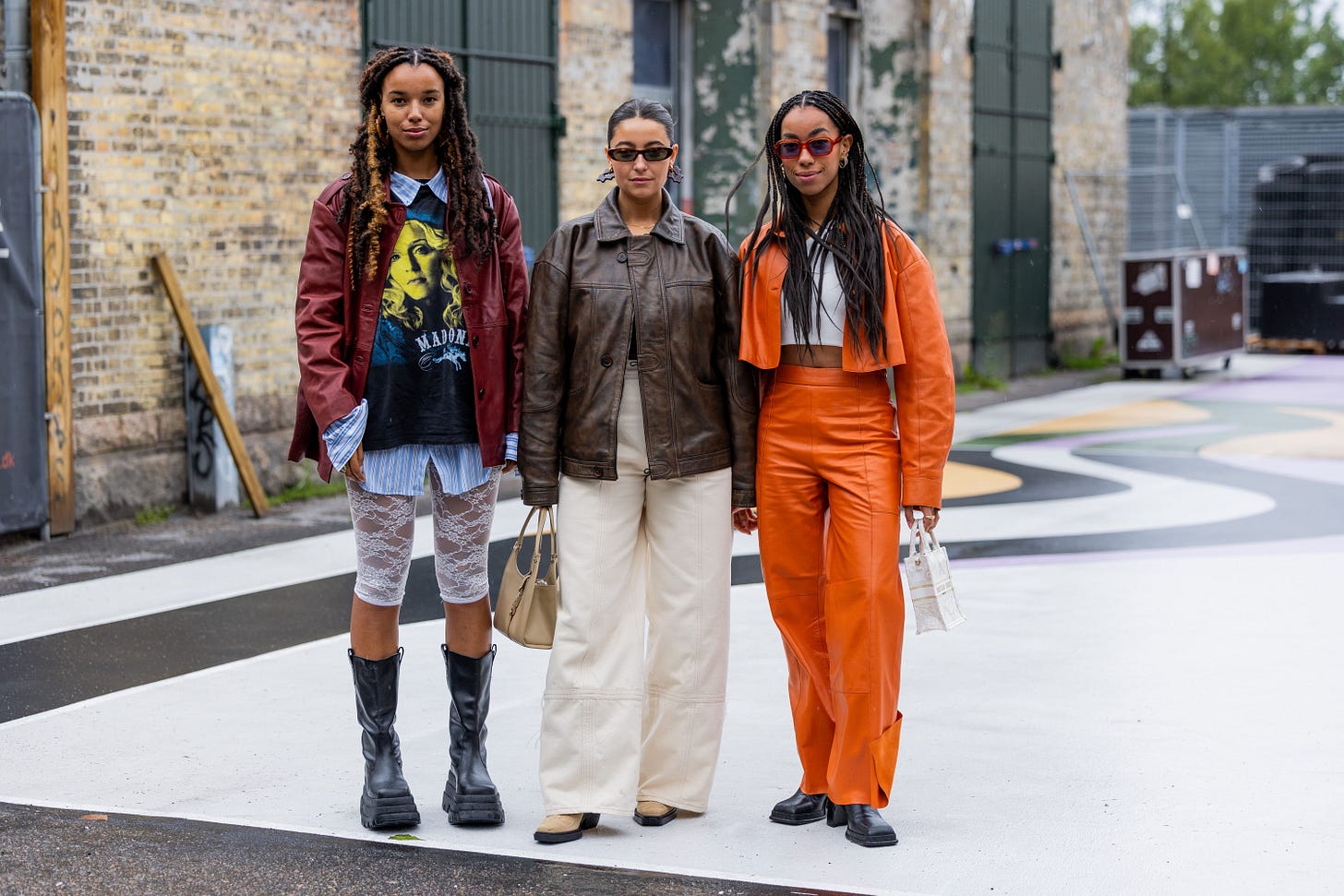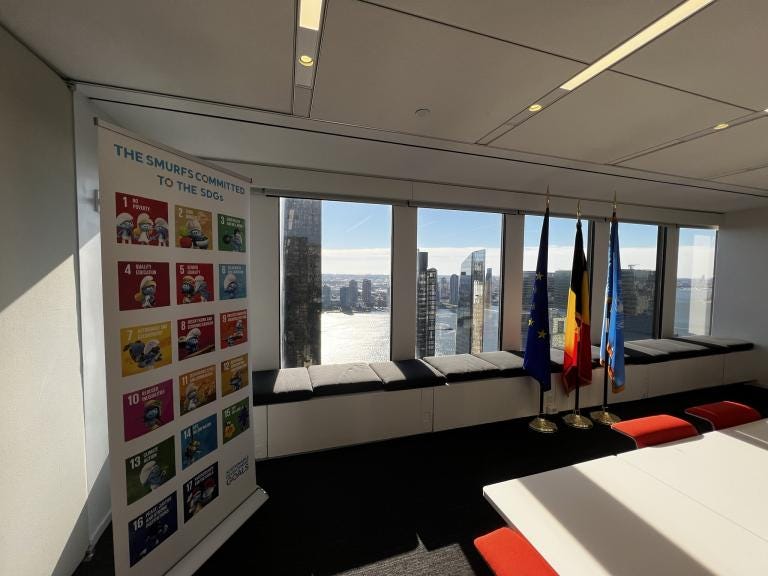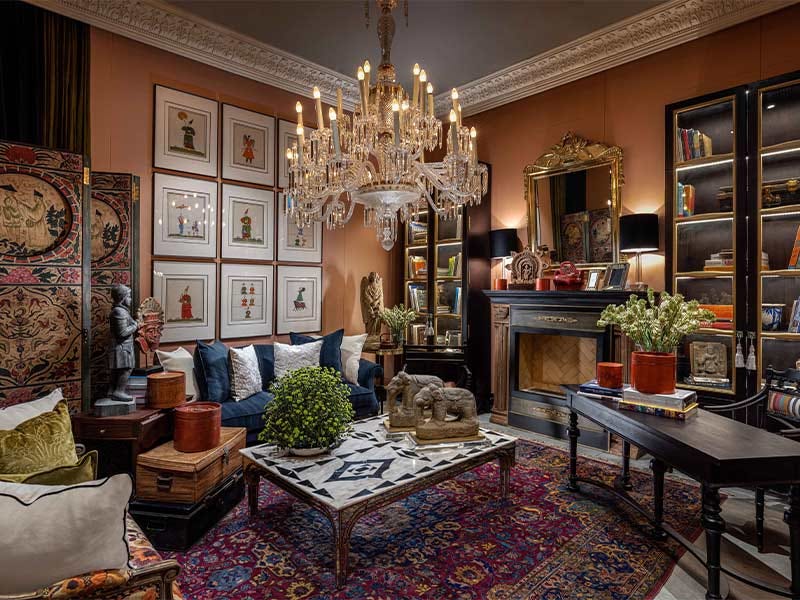Interior Design as Brazilianization
By the time you're debating minimalism vs. maximalism, your civilization is already lost.
On Quora, someone decided to compare and contrast the Scandinavian countries to New Zealand and said that the Scandinavian countries were “super feminine” in always thinking about presenting themselves and New Zealand was “super masculine” and had “the number nine wire mentality” and that was the main difference besides the weather. Recently I have learned of the idea of Brazilianization which is why I decided that the popular idea of going to live and study in Europe sounded totally unappealing, only to find America was exactly the same as Europe, and neither of them is remotely what they used to be or how people think of them: they’re both Brazil. Today I have finally put these two ideas together and found the most compelling argument that most of the world is totally doomed: people obsessing over how their home interiors look and arguing over what the correct style is on the Internet.


I don’t think anyone needs much of an argument over the Quoran’s point.
The Brazilianization of the World - American Affairs Journal
Moreover, the social exclusion that seems so essential to Brazil’s social formation is not an accident, but a produced duality. In Brazil, this has been known as Belíndia, a term coined in 1974 by the economist Edmar Lisboa Bacha: Brazil is a rich, urban Belgium perched atop a poor, rural India, all in one country. Those in the Brazilian “Belgium” inhabit a country that is ostensibly modern and well-functioning, but is held back by those “outside,” in the backwards, semifeudal India. Yet as de Oliveira showed, the “inside” is dependent on the exploitation of the “outside” for its progress. Not only that, but the dualism shapes the inside of the “Belgium” itself; it creates a corrupt, patrimonial, and selfish elite, only too happy to wash its hands of the conditions found in its own “India.”
Unfortunately, rather than the Belíndia metaphor becoming less relevant in recent decades, it has only become more so. Consider what each component country represents in our times: Belgium may still be wealthy, but it is bureaucratized, fragmented, and immobile; India may still be poor, but it is now also high-tech and governed by reactionary populism. This could just as easily be a picture of Italy, the United States, or the United Kingdom, with their deep regional inequalities, sclerotic politics, and spectacular populism.
How can you visit Brazil when you’re already there?
The U.S. has more in common with South America than Europe | The Week
Minimalism is often also called Scandinavian minimalism, and it is contrasted to maximalism, which is sometimes called South Asian maximalism. Belgium may not be Scandinavian, but it’s close enough, especially when directly contrasted to South Asia which is essentially a synonym for India. The Belgian stratum of most countries is minimalist, while the Indian one is maximalist, and the older generations that have more wealth tend toward minimalism while the younger ones tend toward maximalism. Meanwhile, I’m looking for metal or plastic tools instead of wood ones to try to start gardening and cooking clubs to help people learn skills in the economy and thinking it’s cool that I could get a purple version of the box that opens with stages to put my blue welding torch, pliers, and wire trimmers in, and wondering what the cheapest cabochon cutter is to make optics equipment and sell some jewelry on the side since Rock Rascals apparently aren’t made anymore. Will my welding torch give me joy? What about zincite vs. galena for cat-whisker radios? I can have thirty books, but how many zincite crystals can I have? There would be crickets from Marie Kondo if she didn’t already decide she had too many crickets. You can’t just casually have around-the-house crickets after all.
Our entire society has become so enmeshed in consumerism it has forgotten how to produce anything and apparently doesn’t think metal pipes, cables, or trucks are cool anymore (the last point explains the inability of a certain someone to even make a functional truck.) While describing this as masculine vs. feminine seems somewhat oversimplified and will make some people want to divide the virtues solely along gendered lines (ironically since virtue literally means manliness anyway,) it’s easy to see that’s not entirely an incorrect way to describe it. People forget Rosie the Riveter was the WWII and 1950s generation that people want to incorrectly stereotype as domestic housewives. No, if you’re approximately my age those are your grandparents who worked hard and beat the Nazis, not your parents or the hippies.
A highly functional truck that can be used effectively for intensive labor.
This also reminds me of the popular debates in Europe over multiculturalism. The debate over whether people should have traditional culture or whether a bunch of people of different races wearing different types of clothing and eating different food should be brought in is just as much of a pointless luxury as debating over minimalism vs. maximalism. You should not even have the leisure to spend all your time debating leisure like some kind of meta-leisure. I personally don’t believe either that every culture is equal or good or that only one (generally assumed to be Europeans or some subset of Europeans) is, I just want to, you know, see society function, and if multiple groups can function equally well in different contexts or the same contexts that’s great, and if some people have destructive cultural practices that should be banned. However, people aren’t thinking about the functioning of society, people are thinking totally about luxury and consumerism, and if someone wears a sari and eats Indian food or they wear a dirndl and eat leberwurst is genuinely the most important thing to them, rather than how well they can do their jobs and whether they’re being destructive or not. If you’re concerned that the people wearing saris are destroying your society, they probably are, but so are the people wearing dirndls, because no one is going to work and that’s destroying society. The people who aren’t destroying society are wearing hard hats and aprons.
So please, stop spending all your time debating about aesthetics and minimalism and maximalism on the Internet or in real life. Think about what you’re doing, what you will use things for, and how you will live, rather than making all these rooms and sometimes also outfits that might as well be for a pharaoh’s tomb. I think most people more or less want to be some kind of mummy or they wouldn’t think and talk and act this way. They have given up on life.
There’s nothing like hearing Aussie and Kiwi accents to remind you that somewhere in the world, people are just actually alive, and not spending all their time thinking about how to decorate their tombs, I mean homes. If you’re looking for somewhere to move I’m still going to try to convince you to move to New Zealand or Australia with me, and the fact my reasons are basically the opposite of consumerist will probably stick out like a sore thumb. Nothing wrong with bungee jumping or rugby, which do happen to sound way more fun anyway than the European hobby of sitting on a beach naked with trash everywhere because picking it up would ruin your pure unadulterated leisure time with the smell of non-bathing French people in the air, but that’s not involved in my arguments at all, because the economic metrics have nothing to do with consumerism.
I think the metrics I have found are more or less proof of one of my recent obsessions, ecological economics, because the places with the best ecology are impacted by the economic crash the least, and the fact those places have sweet nature is a nice bonus, but also more or less the reason why they’re faring so well, because economics relies on actually physically producing things and colonialism is worn out. Europeans can’t extract anything from the colonies anymore so they are leading the world in suicidal campaigns about how people are obligated to decorate their tombs, err, rooms. No one would ever actually use their room because it’s not for living in, it’s just for showing off. Remember, Marie Kondo said don’t have any “around-the-house clothes,” because it’s not like you’re going to be getting your clothes dirty when you can just get your third world slaves to do all your chores for you, and then wonder why you’re surrounded by jihadists and the economy is a kind of trash that all your decluttering can’t remove because you can’t just throw away facts even if they don’t bring you joy.
See also: Orange mana.
Orange Mana
There is often discussion of why Europe doesn’t have a lot of skyscrapers and modern buildings, where defenders of Europe will come in and say “it’s so human-scale and walkable and preserves our heritage!” I think that argument is stupid. It just sounds like you’re about the recite the Definition of Man from














